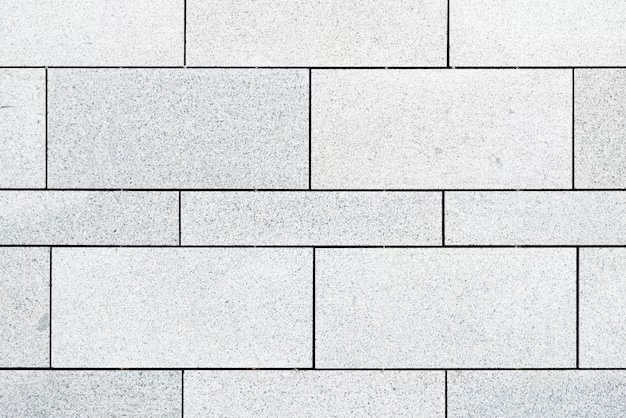
Manufactured by Pooja Industries
Key Features of Interlocking Tiles
Durability and Strength
Interlocking tiles are manufactured from high-quality materials such as concrete, clay, or plastic, ensuring they are strong and long-lasting. They are designed to withstand heavy loads and resist wear and tear, making them ideal for areas with high foot traffic or vehicular movement. The interlocking mechanism enhances the overall stability of the paved surface, preventing shifting or settling over time.
Ease of Installation
One of the most significant advantages of interlocking tiles is their ease of installation. Unlike traditional paving methods, which may require mortar or adhesives, interlocking tiles fit together seamlessly, reducing installation time and labor costs. The tiles can be laid over various substrates, including sand, gravel, or existing pavement, making them adaptable to different site conditions.
Low Maintenance
Interlocking tiles require minimal maintenance compared to other paving options. Their design allows for easy drainage, reducing the likelihood of water pooling and associated damage. Additionally, if a tile becomes damaged, it can be easily replaced without disturbing the surrounding tiles, ensuring that maintenance is both quick and cost-effective.
Aesthetic Versatility
Available in a wide range of colors, shapes, and patterns, interlocking tiles offer endless design possibilities. Whether you want a simple, uniform look or a complex, decorative pattern, these tiles can be arranged to suit any aesthetic preference. They are an excellent choice for enhancing the visual appeal of outdoor spaces, such as patios, walkways, driveways, and garden paths.
Environmental Benefits
Many interlocking tiles are designed with sustainability in mind. Permeable interlocking tiles, for example, allow water to pass through the surface, reducing runoff and promoting groundwater recharge. This feature makes them an eco-friendly option, particularly in urban areas where managing stormwater is a concern. Additionally, some manufacturers use recycled materials in their production, further reducing the environmental impact.
Applications of Interlocking Tiles
Residential Use
Interlocking tiles are commonly used in residential driveways, walkways, patios, and garden paths. Their ability to blend functionality with aesthetic appeal makes them a favorite among homeowners looking to enhance the exterior of their homes.
Commercial and Public Spaces
These tiles are widely used in commercial areas such as shopping centers, parking lots, and public walkways. Their durability and ease of maintenance make them suitable for high-traffic areas, while their design flexibility allows for creative and attractive paving solutions.
Roads and Infrastructure
Interlocking tiles are increasingly being used in road construction and other infrastructure projects. They are particularly effective in areas where traditional asphalt or concrete surfaces might be prone to damage or where quick installation is required.
Advantages of 11 KV HG Fuses
- Cost-Effective: The relatively low cost of materials and installation, combined with their long lifespan, makes interlocking tiles a cost-effective paving solution.
- Flexible Design: The wide variety of shapes, colors, and patterns available allows for creative and customized designs that can enhance any space.
- Easy Repair and Maintenance: Damaged tiles can be individually replaced without disrupting the entire paved area, making maintenance simple and inexpensive.
- Eco-Friendly Options: Permeable and recycled-material tiles offer environmental benefits, contributing to sustainable construction practices.

